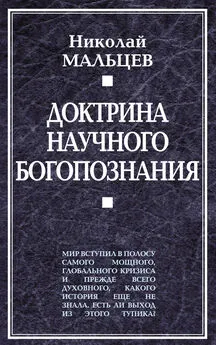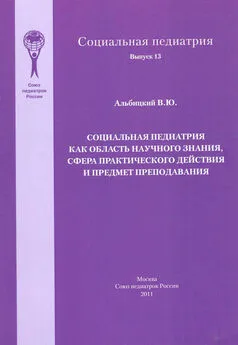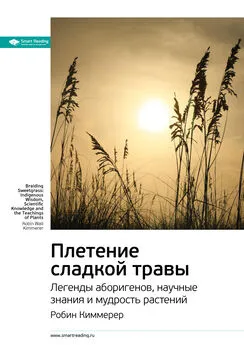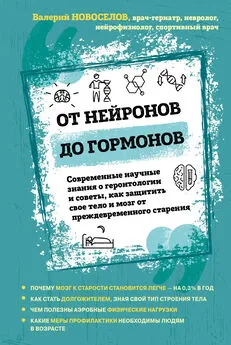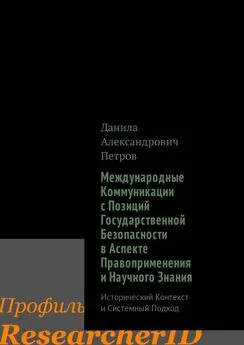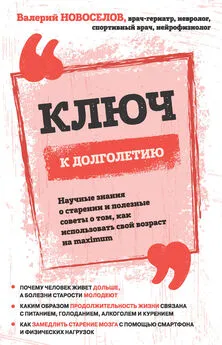Нико Штер - Власть научного знания
- Название:Власть научного знания
- Автор:
- Жанр:
- Издательство:Алетейя
- Год:2015
- Город:Санкт-Петербург
- ISBN:978-5-9905769-3-3
- Рейтинг:
- Избранное:Добавить в избранное
-
Отзывы:
-
Ваша оценка:
Нико Штер - Власть научного знания краткое содержание
В центре внимания социологов Нико Штера и Райнера Грундманна – вопрос о том, при каких условиях научное знание влияет на практическую политику и как именно организовано это влияние.
В поисках ответа авторы книги анализируют три кейса – экономическую теорию и политику Кейнса, науку о расах и ее роль в трагедии холокоста, а также исследования в области климатологии, их восприятие в обществе и их последствия.
Власть научного знания - читать онлайн бесплатно ознакомительный отрывок
Интервал:
Закладка:
Oliver, Michael J., and Hugh Pemberton. 2004. “Learning and Change in 20th-Century British Economic Policy”, in: Governance 17 (3). P. 415441.
Oppenheimer, Michael, Brian C. O’Neill, Mort Webster, and Shardul Agrawala. 2007. “Climate Change: He Limits of Consensus”, in: Science 317 (5844). P. 1505–1506.
Oreskes, Naomi. 2003. “He Role of Quantitative Models in Science”, in: Charles D. Canham, Jonathan J. Cole, and William K. Lauenroth (Eds.) Models in Ecosystem Science. Princeton: Princeton University Press. P. 13–31.
Oreskes, Naomi. 2004. “Beyond the Ivory Tower: He Scientific Consensus on Climate Change”, in: Science 306 (5702). P. 1686.
Oreskes, Naomi, and Shrader-Frechette, Kristin, and Belitz, Kenneth. 1994. „Verification, Validation, and Confirmation of Numerical Models in the Earth Sciences“, in: Science 263. P. 641.
Orlans, Harold. 1976. “He Advocacy of Social Science in Europe and North America”, in: Minerva 14. P. 6–32.
Orlans, Harold. 1968. “Making Social Research More Useful to Government”, in: Social Science Information 7. P. 151–158.
Overpeck, Janathan T., and Weiss, Jeremy L. 2009. “Projections of Future Sea Level Becoming More Dire”, in: Proceedings of the Natinal Academy of Sciences of the United States of America 106. P. 21461.
Parker, Richard . 2005. John Kenneth Galbraith: His Life, His Politics, His Economics. New York; Farrar, Straus and Giroux.
Parkin, Michael, and Robin Bade. 1986. Modern Macroeconomics. Second Edition. Scarborough, Ontario: Prentice-Hall.
Parsons, Talcott. 1959. “Some Problems Confronting Sociology as a Profession”, in: American Sociological Review 24. P. 547–559.
Parsons, Talcott. 1938. “He Role of Ideas in Social Action”, in: American Sociological Review 3 (5). P. 652–664.
Patinkin, Don. 1982. Anticipations of the General Heory? And other Essays on Keynes. Chicago: University of Chicago Press.
Payne, Geoff. 1980. “Sociology and Policy Research”, in: Payne, Geoff et al. (Eds.) Sociology and Social Research. London. P. 142–159.
Peattie, Lesa. 1996. “Urban Research in the 1990s”, in: Cohne, Michael A. and Ruble, Blair, and Tulchin, Joseph, and Garland, Allison (Eds.) Preparing for the Urban Future. Global Pressures and Local Forces. Washington, D.C. P. 371–391.
Perl, Martin L. 1971. “tte Scientific Advisory System: Some Observations”, in: Science 173. P. 1211–1215.
Perrow, Charles. 1984. Normal Accidents. New York.
Pielke, Roger sr. 2009. “Climate Change: The Need to Consider Human Forcings Besides Greenhouse Gases”, in: Eos 90 (45).
Pielke, Roger A., Jr. 2007. The Honest Broker: Making Sense of Science in Policy and Politics . Cambridge: Cambridge University Press.
Pielke, Roger A. jr. 2009. “He British Climate Change Act: A Critical Evaluation and Proposed Alternative Approach”, in: Environmental Research Letters 4. P. 024010.
Pielke, Roger A. jr., and Michele M. Betsill. 1997. “Policy for Science for Policy: A Commentary on Lambright on Ozone Depletion and Acid Rain”, in: Research Policy 26 (2). P. 157–168.
Pierson, Paul. 1993. “When Effect Becomes Cause: Policy Feedback and Political Change”, in: World Politics 45. P. 595–628.
Pigou, Arthur C. 1951. Keynes’ General Theory. A Retrospective View. London.
Pilling, Geoffrey. 1986. The Crisis of Keynesian Economics. A Marxist View . London.
Platt, Jennifer. 1976. Realities of Social Research. An Empirical Study of British Sociologists. London.
Plessner, Helmut [1928] 1981. Die Stufen des Organischen und der Mensch. Eine philosophische Anthropologie. Gesammelte Schriften IV. Frankfurt/M.
Ploetz, Alfred. 1911. “Die Begriffe Rasse und Gesellschaft und einige damit zusammenhängende Probleme”, in: Verhandlungen des Ersten Deutschen Soziologentages vom 19–22. Oktober 1910 in Frankfurt am Main. Tügingen. S. 111–136.
Poincare, Henri. 1914. Science and Method. London.
Poliakov, Leon. 1974. The Aryan Myth: A History of Racist and Nationalist Ideas in Europe. New York: Basic Books.
Popkin, Richard H. 1974. “He Philosophical Bases of Modern Racism”, in: Walton, Craig, and Anton, John P. (Eds.) Philosophy and the Civilizing Arts: Essays Presented to Herbert W. Schneider on his Eightieth Birthday. Athens, Ohio. P. 126–165.
Popper, Karl R. 1972a. “Epistemology without a knowing subject”, in: Karl R. Popper. Objective Knowledge: An Evolutionary Approach. Oxford: Clarendon Press. P. 106–152.
Popper, Karl R. [1957] 1972. The Poverty of Historicism. London: Routledge and Kegan Paul.
Popper, Karl R. 1972b. “Of Cloud and Clocks. An Approach to the Problem of Rationality and the Freedom of Man”, in: Popper, Karl R. Objective Knowledge. An Evolutionary Approach. Oxford. P. 206–255.
Popper, Karl R. 1956. “Hree Views Concerning Human Knowledge”, in: Conjectures and Refutations. London. P. 130–160.
Prewitt, Kenneth. 2005. „Political Ideas and a Political Science for Policy“, in: The Annals of the American Academy of Political and Social Science 600. P. 14–29.
Price, Derek de Solla. 1963. Little Science, Big Science… And Beyond. New York.
Prins, Swyn, Isabel Galiana, Christopher Green, Reiner Grundmann, Mike Hulme, Atte Korhola, Frank Laird, Ted Nordhaus, Roger Pielke jr., Steve Rayner, Daniel Sarewitz, Michael Shellenberger, Nico Stehr, and Hiroyuki Tezuka. 2010. The Hartwell Paper: A New Direction for Climate Policy after the Crash of2009. Oxford, UK: Institute for Science, Innovation and Society, University of Oxford.
Proctor, Robert N. 1988a. Racial Hygiene. Medicine under the Nazis. Cambridge, MA: Harvard University Press.
Proctor, Robert N. 1988b. “From Anthropologie to Rassenkunde in the German Anthropological Tradition”, in: George W. Stocking Jr. (Ed.) Bones, Bodies, Behavior. Essays on Biological Anthropology. History of Anthropology, Volume 5. Madison, WI: He University of Wisconsin Press. P. 138–179.
Przeworski, Adam, and Teune, Henry. 1970. The Logic of Comparative Social Inquiry. New York.
Radder, Hans. 1986. “Experimetn, Technology and the Intrinsic Connection Between Knowledge and Power”, in: Social Studies of Science 16. P. 663–683.
Ravetz, Jerome R. 1971. Scientific Knowledge and Its Social Problems. Oxford.
Ravetz, Jerome R. 1985. “Usable Knowledge, Usable Ignorance: Incomplete Science with Policy Implications”, in: Clark, William C., and
R. E. Munn (Eds.) Sustainable Development of the Biosphere. Cambridge. P. 415–432.
Ravetz, Jerome R. 1990. The Merger of Knowledge with Power. London.
Rehberg, Karl-Siegbert, 1986. “Deutungswissen der Moderne oder ‘administrative Hilfswissenschaft’? Konservative Schwierigkeiten mit der Soziologie“, in: Papcke, Sven (Hg.) Ordnung und Theorie. Beiträge zur Geschichte der Soziologie in Deutschland. Darmstadt. S. 7-47.
Rice, Thurman B. 1929. Racial Hygiene: A Practical Discussion of Eugenics and Race Culture. New York.
Rich, Georg. 1983. „Weltwirtschaftliche Verpflechtung und geldpolitische Handlungsfähigkeit der Schweiz“, in: Schweizerisches Jahrbuch für Politische Wissenschaft 23. P. 271–291.
Rich, Robert F. 1977. „Use of Social Science Information by Federal |Bureaucrats: Knowledge for Action vs. Knowledge for Understanding”, in: Weiss, Carol H. (Ed.) Using Social Research In Public Policy Making. Lexington. P. 199–212.
Riecken, Henry W. 1969. “Social Sciences and Social Problems”, in: Social Science Information 8. S. 101–129.
Robinson, E.A.G. 1956. “John Maynard Keynes 1883–1946“, in: John Maynard Keynes. Politik und Wirtschaft: Männer und Probleme. Ausgewählte Abhandlungen. Tübingen: J.C.B. Mohr (Paul Siebeck). S. 1-69.
Röpke, Wilhelm. 1932. Krise und Konjunktur. Leipzig: Quelle & Meyer.
Rose, Nikolas. 1994. „Expertise and the Government of Conduct“, in: Studies in Law, Politics and Society 14. P. 359–397.
Rose, Nikolas. 1993. „Government, Authority and Expertise in Advanced Liberalism“, in: Economy and Society 22. P. 283–299.
Rosecrance, Richard. 1987. Der neue Handelsstaat: Herausforderungen für Politik und Wirtschaft. Frankfurt am Main: Campus.
Rosenberg, Charles E. 1976. No Other Gods: On Science and American Social Thought. Baltimore.
Rosenstrauch, Hazel. 1988. Aus Nachbarn werden Juden: Ausgrenzung und Selbstbehauptung 1933–1942. Berlin: Transit.
Rosenzweig, Mark, and Wolpin, Kenneth. 2000. „Natural,Natural’ Experiments“, in: Journal of Economic Literature 38. P. 827–874.
Ross, Laurence H. 1987. “Reflections on Doing Policy-Relevant Sociology: How to Cope with MADD Mothers”, in: American Sociologist 18. P. 173–178.
Rossi, Peter H. 1987. “No Good Applied Social Research Goes Unpinished”, in: Society 24. P. 73–79.
Rossi, Peter H., and Wright, James D. 1978. “tte Heory and Practice of Applied Social Research”, in: Evaluation Journal 2. P. 171–191.
Rothschild, Kurt W. 1971. Power in Economics. London.
Rouse, Joseph. 1987. Knowledge and Power. Toward a Political Philosophy of Science. Ithaca.
Rügemer, H. 1938. “Die 'Nature' einer Greuelzeitschrift“, in: Zeitschrift für die gesammte Staatswissenschaft 3. S. 475–479.
Rule, James B. 1994. “Dilemmas of Heoretical Progress”, in: Sociological Forum 9. S. 241–257.
Rushton, Philippe J. 1995. Race, Evolution, and Behavior. A Life History Perspective. New Brunswick, New Jersey.
Russel, Beverly, and Shore, Arnold. 1976. “Limitations on the Governmental Use of Social Science in the United States”, in: Minerva 1. P. 475–495.
Russill, Chris, and Zoe Nyssa. 2009. “tte Tipping Point Trend in Climate Change Communication”, in: Global Environmental Change 19 (3). P. 336–344.
Salais, Robert, and Villeneuve, Robert (Eds.) 2004. Europe and the Capability Approach. Cambridge.
Salant, W. 1989. “tte Spread of Keynesian Doctrines and Practices in the United States”, in: P. Hall (Ed.) The Political Power of Economic Ideas. P. 27–51.
Salter, Liora, and Levy, Edwin, and Leiss, William. 1988. Mandated Science: Science and Scientists in the Making Standards . Dordrecht.
Samuelson, Paul A. 1959. “What Economists Know”, in: Daniel Lerner (Ed.) The Human Meaning of the Social Sciences: Original Essays on the History and the Application of the Social Sciences. Cleveland: He World Publishing Company. P. 183–213.
Читать дальшеИнтервал:
Закладка:



